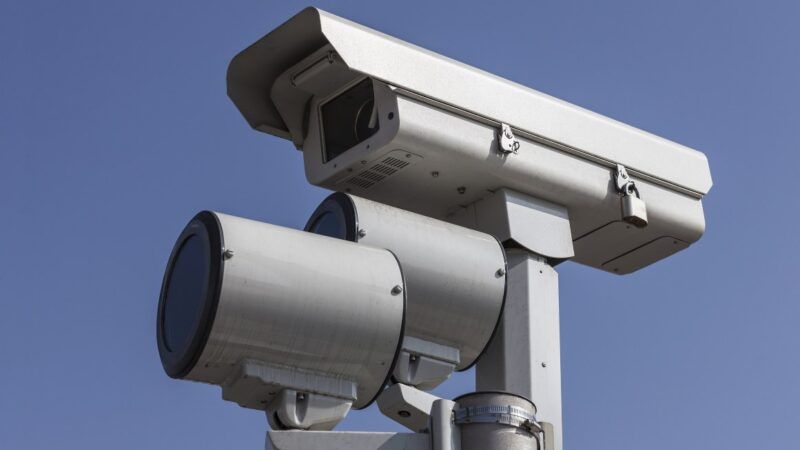Chicago's Red Light Cameras Keep Fueling Corruption Scandals
A state senator joins several local officials in federal indictments for taking bribes in exchange for contracts.

Yet another public official in the Chicago area has been accused of corruption in connection with the implementation and operation of revenue-generating red-light cameras.
Illinois State Sen. Emil Jones III (D-Chicago) was indicted in September on federal charges of bribery and lying to the FBI. He's accused of accepting $5,000 and the promise of a job for an associate from a person connected to SafeSpeed, a red-light camera company. In exchange, Jones allegedly promised to exclude SafeSpeed from parts of a proposed state bill from 2019 that called for a state study of automated traffic enforcement systems like red-light cameras.
At this point, we should not be surprised at accusations of corruption and bribery concerning the extremely active revenue-generating cameras in the Chicago area. Speed cameras (distinct from red-light cameras) in Chicago accounted for nearly $90 million in revenue in Chicago in 2021. Mayor Lori Lightfoot even arranged to have the cameras hit cars traveling just six miles per hour over the speed limit to help boost the city's revenue. Claims that these cameras reduce speeding are belied by the data that the city saw more fatal crashes in 2021 than in 2020 or 2019.
Red-light cameras have been creating their own set of additional corruption problems. In 2016, a former Chicago official was sentenced to 10 years in federal prison for taking $2 million in bribes from a different red light camera company to secure a contract with the city. As with the speed cameras, the red light cameras are a huge source of revenue for Chicago. In 2020, the city issued an estimated 500,000 red light camera tickets from 300 cameras for a dollar value of more than $52 million.
Jones is not even the first politician to get into legal hot water for inappropriate ties with SafeSpeed. The Chicago Sun-Times, reporting Jones' indictment, notes four other local officials who have faced charges in the past for misconduct connected to SafeSpeed's work in the Chicago suburbs. There's an ongoing federal corruption investigation of various officials attempting to secure deals for SafeSpeed in exchange for favors. The cases all appear to be connected with a former SafeSpeed employee named Omar Maani, and SafeSpeed has put out a statement that it is "shocked and saddened." The company has portrayed Maani as a rogue actor. SafeSpeed and its owners are not accused of any misconduct. In 2020, Maani entered into a deferred-prosecution agreement with the federal government and is cooperating with prosecutors.
Jones, meanwhile, is ignoring calls by Democratic Illinois Gov. J.B. Pritzker to resign from the state Senate, though he did give up his position as chair of the Senate Licensed Activities Committee. Jones's attorneys told the Chicago Sun-Times that he maintains his innocence and asked the public not to "rush to judgment." He's running unopposed for reelection in November.
Red light cameras, meanwhile, are still making citizens miserable while serving as a cash cow. The village of Oak Brook, a suburb west of Chicago, is trying to get neighboring Oakbrook Terrace to turn off their red light cameras, but Oakbrook Terrace is refusing. Oakbrook Terrace's former mayor, Tony Ragucci, is one of the officials in this scandal. He pleaded guilty in May to pocketing close to $90,000 in exchange for allowing SafeSpeed to operate red-light cameras in the town.
The state's Department of Transportation got Oakbrook Terrace's cameras turned off temporarily, but the town (with a population of fewer than 3,000) got a restraining order to let them operate the cameras again.
"We all know it's about money. Revenue. Legal or illegal. That's why these cameras are there," Oak Brook Village Trustee Mike Manzo said, according to ABC7 News in Chicago. "These cameras are not there because of safety."
Show Comments (30)